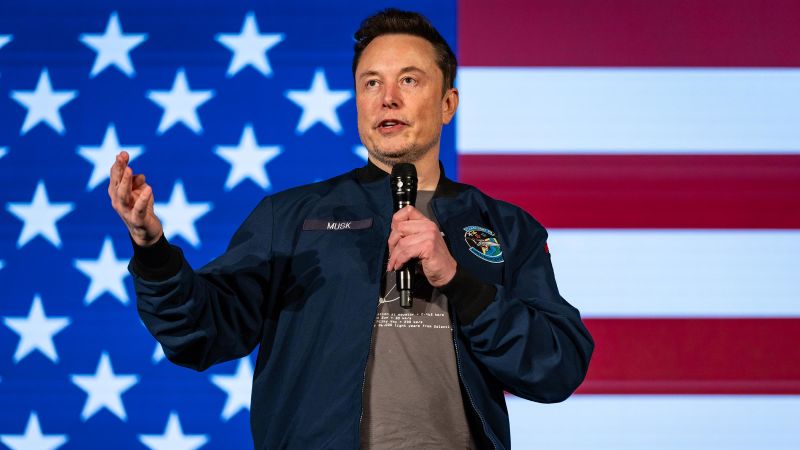A Pennsylvania judge ruled Monday that Elon Musk’s daily $1 million giveaway to voters can continue, in a victory for the tech billionaire and Donald Trump ally.
Philadelphia Court of Common Pleas Judge Angelo Foglietta rejected arguments from the city’s district attorney, Larry Krasner, who argued that the sweepstakes was an illegal lottery violating state law and must be halted immediately.
The ruling came shortly after an all-day hearing in a packed courtroom in downtown Philadelphia. The hearing was heated at times, with Krasner’s team calling Musk’s political team “shysters” who are running a “scam” and “grift” – and Musk’s team accusing the district attorney of pursuing a “dreadful violation of constitutional rights.”



Can someone please eli5 me why this legal? This is truly above my pay grade apparently
Heard he doesn’t give the money away as a lottery, but to pre-selected people, who plays “the random voter” guy.
But what a shit show regardless.
Oh so it’s not campaign violations, it’s just regular fraud.
It’s still the same violation as originally brought before the court. Offering anything of value to someone for being registered to vote, explicitly including lottery entries, is illegal. That is what happened.
Lying about it being a lottery is an additional crime.
Yes, but he is no mere mortal. He is the richest mortal, thus the law does not bind him.
Then why is the judge letting it continue?
$$$
deleted by creator
And they prove that they aren’t just lying to the public by making them think it’s a lottery they actually have a chance in, right? Right??
Yeah right… So as usual muskrat gets to have his cake and eat it too.
It clearly is illegal, but the judge is allowing it anyway. Most likely because they are extremely corrupt.
Somebody check that judge’s finances!
It’s not necessarily legal.
The judge hasn’t ruled yet on whether Musk broke the law. He simply declined to issue a preliminary injunction.
A preliminary injunction tells someone to stop what they are doing while the court case plays out. In order to get a preliminary injunction, you have to convince a judge that there will be irreparable harm by letting someone continue.
In other words, a judge might rule against an injunction but nevertheless end up ruling against the defendant. Especially if the judge thinks the harm has already been done.
I believe you dropped an important “not”
He’s rich.
It all started with the Powell memo, which set off a movement to legalise corruption in the US.